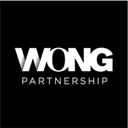4 March, 2016
The Indonesian Government has recently announced the 10th Economic Deregulation Package (Paket Kebijakan Ekonomi 10) (“10th EDP”) on 11 February 2016, aimed to liberalize certain investment sectors and provide new protection for small and medium enterprises (“SMEs”). The policy sets out the foundation for the upcoming revision of the Indonesian Negative Investment List (which sets out the applicable limitations on foreign ownership in each business sector / industry), currently contemplated under Presidential Regulation No. 39 of 2014 (“DNI Regulation”).
With the hope of attracting more foreign investments, the Coordinating Minister for Economic Affairs, Darmin Nasution, announced to the press that the Indonesian Government is planning to revise foreign ownership in various industries (with maximum foreign shareholding increased up to 100% in a number of industries), and even the opening up of 20 business sectors (such as land personal transport, healthcare support services and the film industry) which were previously closed to foreign investors.
Key revisions include:
- More sectors reserved only for SMEs. There will be new activities reserved only for SMEs, such as construction services, commercial building construction, and healthcare building construction, with the permitted value of work to be allowed for such SMEs increased from the existing limit of IDR 1 billion (approximately S$100,000) to IDR 50 billion (approximately S$5.20 million). Other areas which will undergo reform include low-risk low-tech construction consultancy and services with the permitted value of work for such SMEs increased from the existing limit of IDR 1 billion (approximately S$100,000) to IDR 10 billion (approximately S$1 million).
- Mandatory partnership with SME. While Indonesia is open for both domestic and foreign investments, there are certain sectors where companies will be required to partner with SMEs. There will be 110 business sectors (from the previous 48 sectors), which comprise, among others, plantation seeding of 25 hectares or above, and electronic trading through postal order and the internet.
-
Expected change of foreign shareholding limitations. Below is a summary of the highlights of the proposed revision of foreign shareholding limitation on various industries as announced in the 10th EDP, which include:
No
Sectors
Amount of Foreign Shareholding Allowed (Existing DNI)
Amount of Foreign Shareholding Allowed (Expected DNI Revision
1
Bar, restaurant, recreational services, art and entertainment, sport center
51%
100%
2
Online marketplace (electronic Closed trading) organizer – with an investment value above IDR 100 billion (approximately S$10 million)
Closed
100%
3
Healthcare support service
Closed
67%
4
Passenger land transport
Closed
49%
5
Movie industry and film distribution
Closed
100%
6
High voltage electricity utilization installation
Closed
49%
7
Distributorship and warehousing
33%
67%
8
Cold storage
33%
100%
9
Labor training
49%
67%
10
Travel agency
49%
67%
11
Golf course
49%
67%
12
Aviation support service
49%
67%
13
Sport center
49%
100%
14
Film processing laboratorium
49%
100%
15
Crumb rubber industry
49%
100%
16
Private museum
51%
67%
17
Catering service
51%
67%
18
Convention, expo and travel incentive services
51%
67%
19
Construction consultancy service with a value of work above IDR 10 billion
55%
67%
20
Raw materials for pharmaceutical sector
85%
100%
21
Toll road operation
95%
100%
22
Establishment of telecommunication equipment testing/lab test agency
95%
100%
Implications and Insights
In general, the 10th EDP is part of the current Indonesian Government’s economic policy actions to reform and revitalise the economic sector in Indonesia. Ever since the first EDP was launched in September 2015, there have been around 150 regulations
which are either under current review or have been revised and implemented to support the objectives of these EDP reforms, namely the to reduce regulatory bottleneck, to secure the legal rights of investors, to facilitate international trade, to
promote infrastructure development, to provide fiscal incentives for the private sector, to empower SMEs, and to boost local purchasing power and welfare.
Please note that, as at the date of this Update, the Indonesian Government has yet to issue the implementing regulation to the 10th EDP, and thus, the actual implementation of the reforms will have to wait until the enactment of the revised DNI Regulation. We expect such enactment to take place by the end of February 2016 or early March 2016, and will include more specific and detailed reforms to the various applicable industries / business sectors.
For further information, please contact:
Ng Wai King, Partner, WongPartnership
waiking.ng@wongpartnership.com





